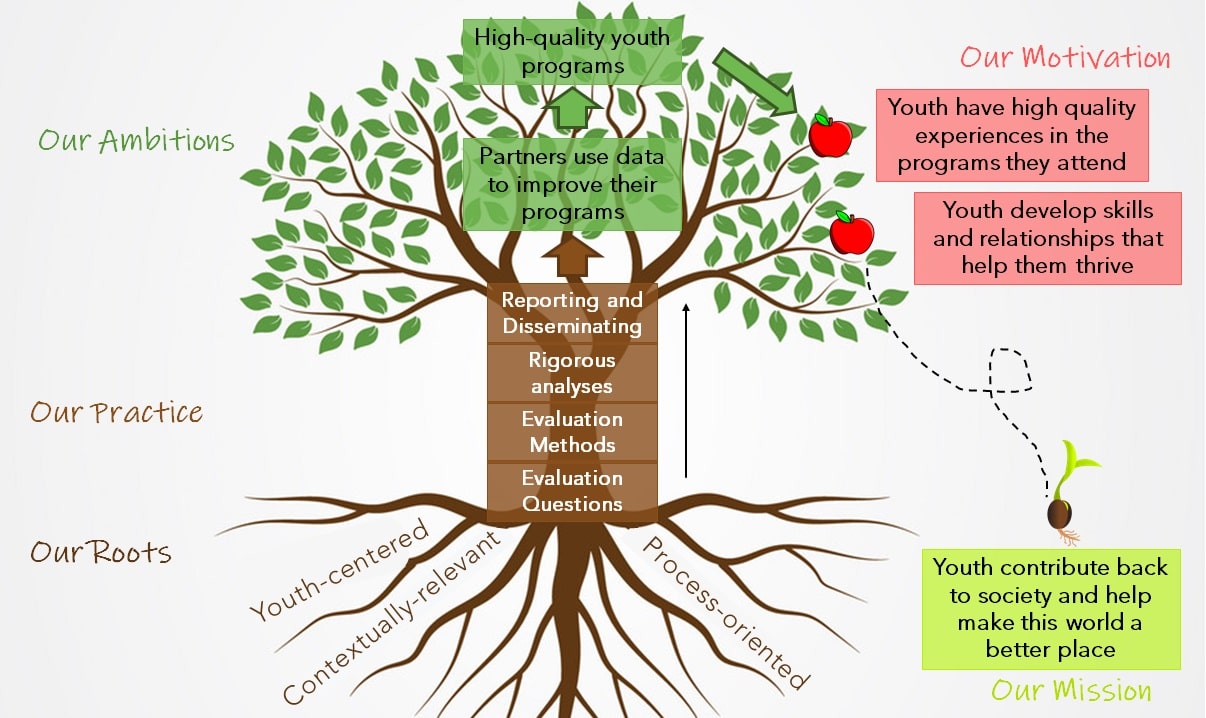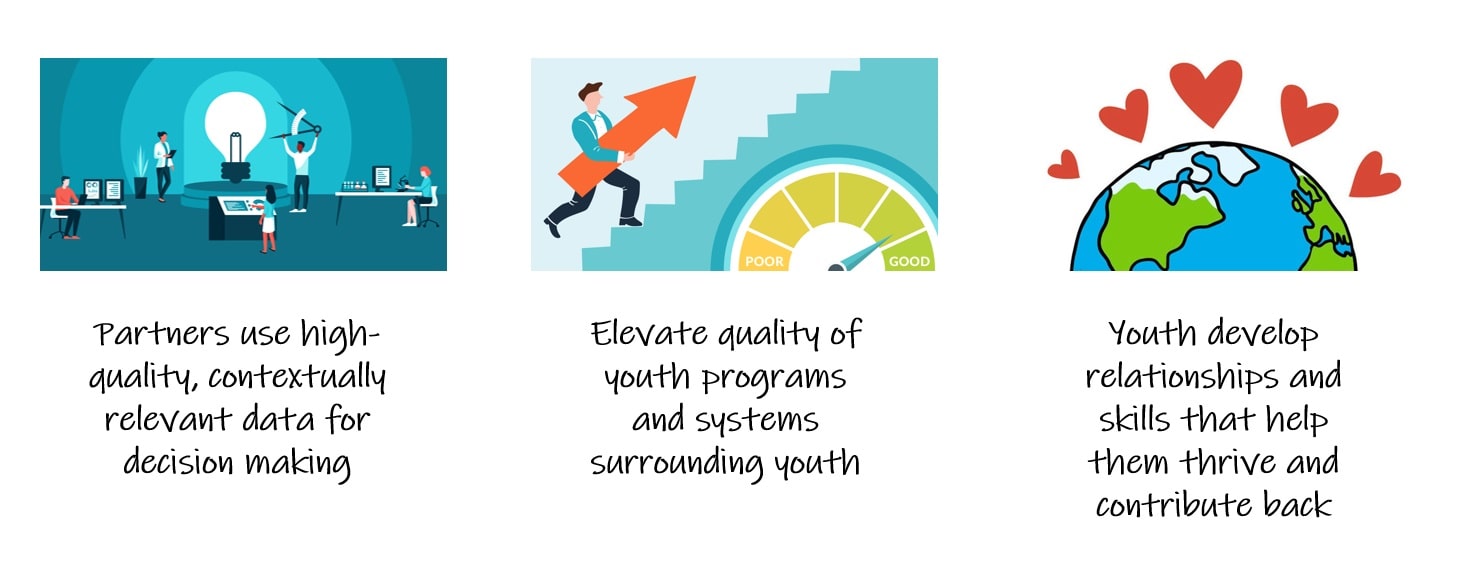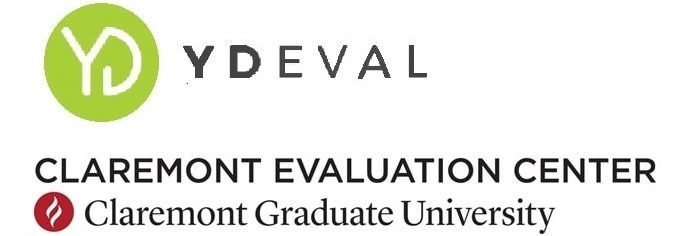How do we conduct our work?
Claremont Evaluation Center (CEC) is one of the top evaluation firms in the nation with deep roots in the evaluation field. Dr. Tiffany Berry is the Associate Director of the CEC with content expertise in youth development, youth-focused programs, afterschool programs, organizational capacity building, and educational evaluation. Dr. Tiffany Berry leads the YDEval lab at the Claremont Evaluation Center. For the past 17 years, YDEval has been regularly involved in evaluations of structured child and youth-serving organizations.
Dr. Tiffany Berry is one of the leading experts in youth development evaluation, and the YDEval team has extensive experience conducting evaluations of child, youth, and family-focused programming in partnership with complex, multi-site, and multi-faceted organizations. These evaluations have focused on diverse topics ranging from program accountability to program improvement and theory of change development to documenting program impact.

Our evaluation approach is reflective of our expertise and scholarship as applied developmental psychologists and program evaluators, as well as our extensive experience working in the landscape of youth program evaluation across the nation.
Youth-centered
- Captures youth experiences: Youth are at the center of all we do. In each evaluation, we intentionally incorporate opportunities for youth to share their voice and their experiences to ensure the work we produce reflects their unique perspectives and ultimately works to create a better experience for youth to develop and thrive.
- Focused on use: We work to produce relevant, actionable, and useful information so that everything we provide can be used to make decisions about how to improve our partners’ programs, services, and systems – all of which, when provided effectively, benefit youth.
Contextually-relevant
- Guided by collaboration: We center our work around our partners’ needs and include them in each stage of the process to ensure our work is relevant to their interests and needs, as well as being contextually sound. Program leadership, frontline staff, and youth are given an important voice throughout the evaluation process from tailoring the design to interpreting the results.
- Rooted in the program and developmental context: Our team has a heavy focus on engaging in contextually-relevant work, ensuring developmentally sensitive methods, utilizing practitioner expertise, and understanding multiple perspectives through multiple methods.
Process-oriented
- Based in theory and evidence: We use our partners’ expertise and social science theory to identify and substantiate the organization’s intended goals and ways of achieving those goals.
- Focused on mechanisms of change: We help our partners not only understand if their intended outcomes are produced but also why and how they are produced. This information helps our partners understand the critical mechanisms and key processes that are promoting youth development in the program context.
- Client-driven, process-focused evaluation questions: Our evaluation team generates questions that are driven by our partners and focused on process and implementation, as well as, impact and effectiveness.
- Contextually appropriate, feasible methods: The methods we use within our evaluations are as unique as each of our partners. We choose methods that are feasible, appropriate for each unique context, and that provide insight into multiple stakeholder perspectives.
- Rigorous statistical analyses: Each partner has their own queries they care about. Thus, we employ a wide range of statistical analyses to ensure we are utilizing the most responsive analyses for each individual client.
- Client-centered, action-oriented reporting: Our evaluation team produces reports that center our partners’ needs and interests, inform actionable decision-making, and are provided at opportune times to ensure they are as useful as possible.
- Given our approach and process, we aim to ensure our partners continually use high-quality, contextually-relevant data to drive their decision-making and program improvement efforts.
- In doing this, we aim to promote high-quality youth programs in which youth will have high-quality experiences.
- From those high-quality experiences, youth can develop skills and relationships that will help them thrive and contribute to their communities.


